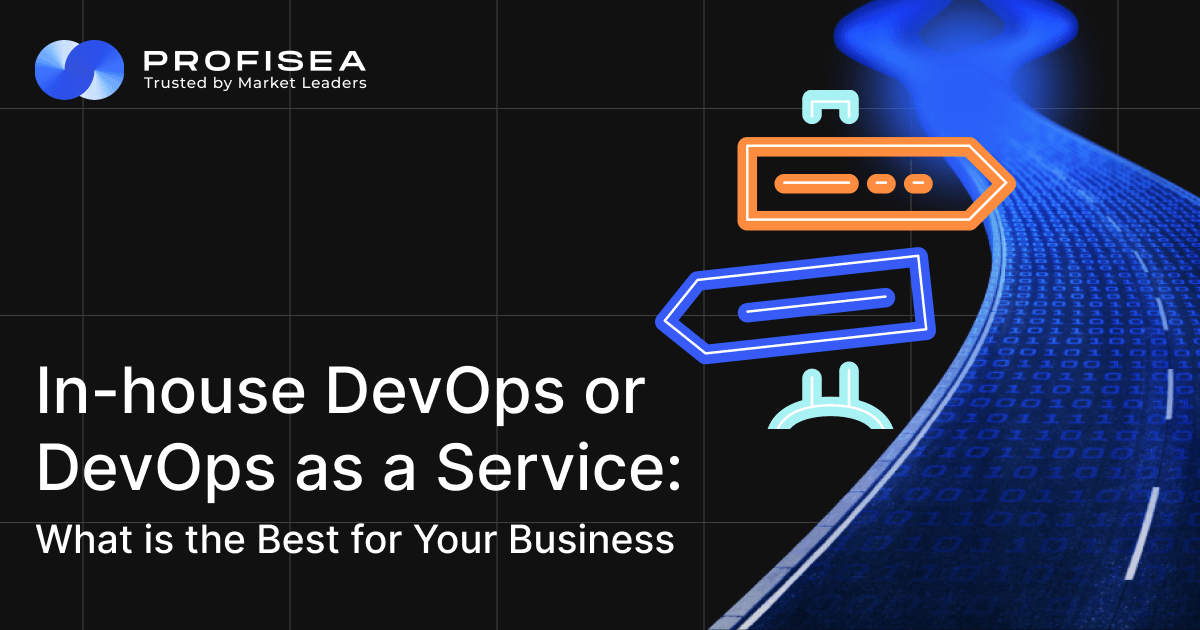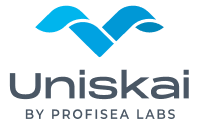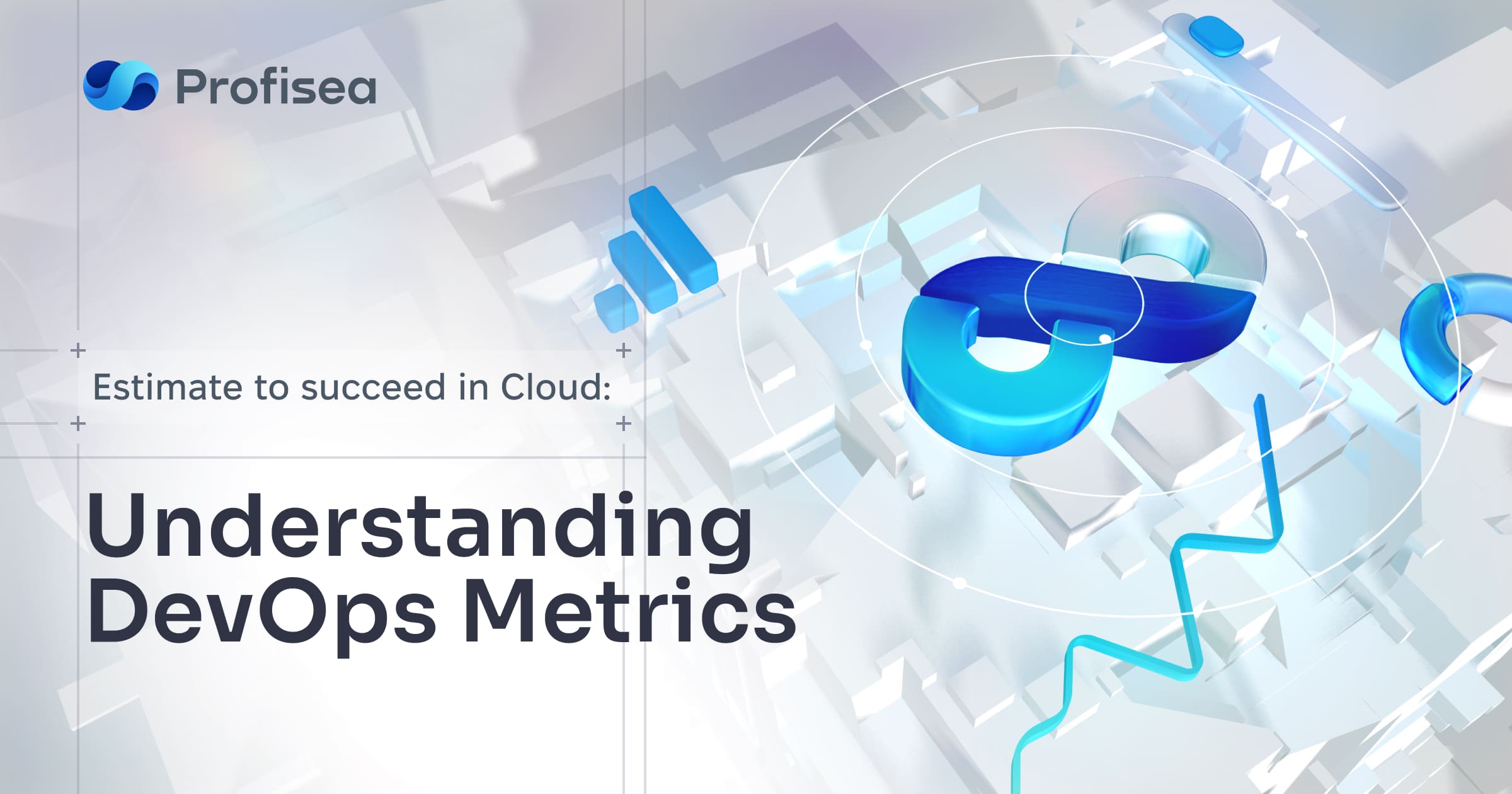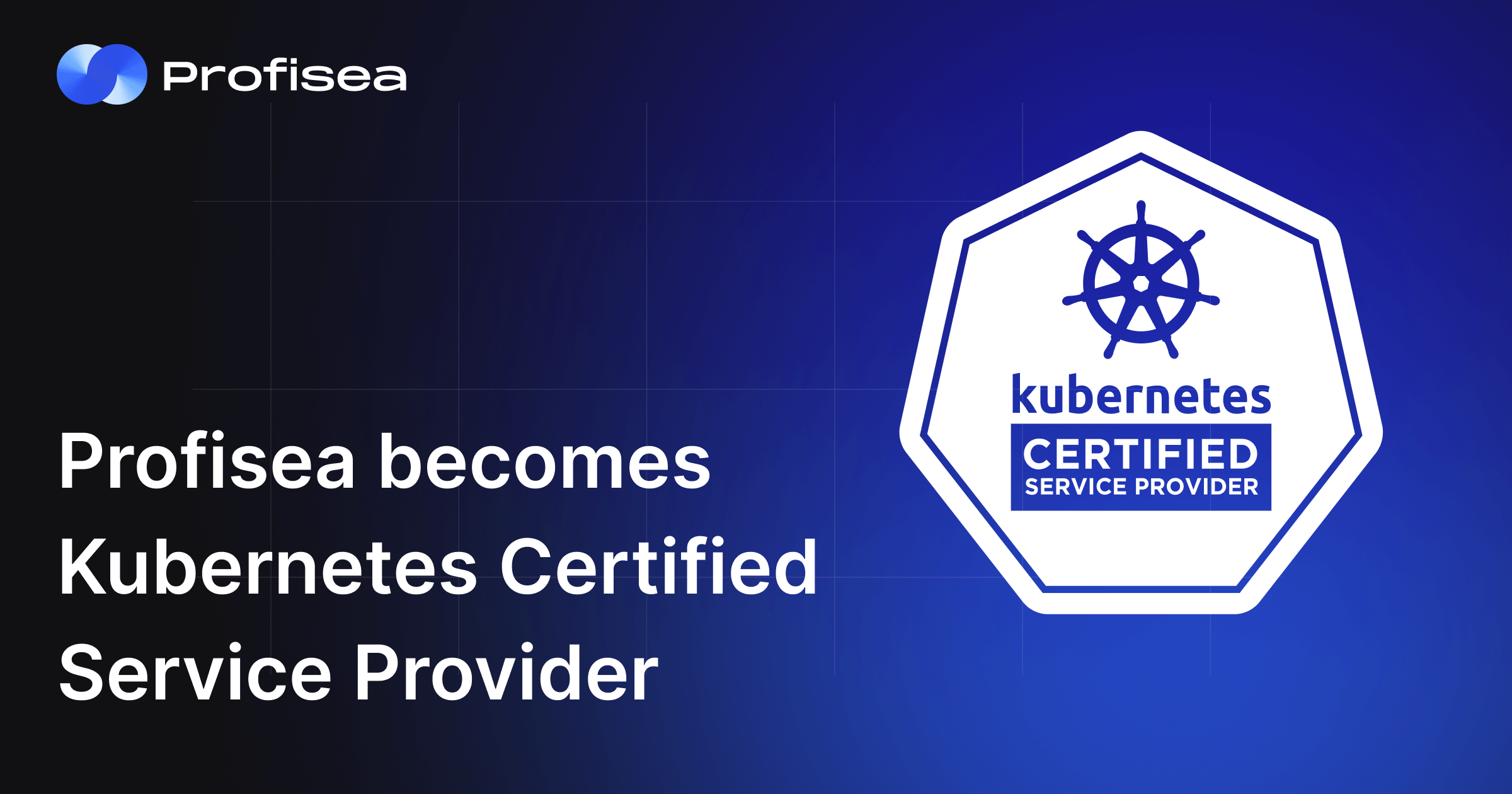In-house DevOps or DevOps as a Service: What is Best for Your Business?
Like most cutting-edge innovations these days, DevOps poses a dilemma for business: should you build your DevOps from scratch leveraging your already considerable investments in your IT department, or should you outsource it and choose DevOps as a service? Actually, this question has more than one correct answer, and let’s see why.
It’s been more than 12 years since DevOps methodology shook up the digital market, winning the undivided attention of IT executives worldwide. During these years, thousands of specialists provided their explanation of DevOps and how it should work — so many experts, so many opinions. However, one point is clear: everyone recognizes that DevOps is all about simplification of software delivery processes for faster production of high-performing, customer-oriented products. According to an Atlassian survey, 99% of IT professionals said DevOps had a positive impact on their organization by improving the quality of products/services, time to market, and team performance.
That’s why many IT companies are craving to implement DevOps in their teams and looking for an easy way to do so. There are two options: Either they develop their own DevOps team by hiring DevOps engineers, or they turn to professional DevOps outsourcing companies to provide them with DevOps as a service. If you are still deliberating about which DevOps option is good for you, or if you find yourself not completely satisfied with how it was carried out in your organization, this article will come in handy.
In-house DevOps: A long-awaited dream or a nightmare?
According to Glassdoor, ‘DevOps Engineer’ is ranked 5th of the ten best jobs in America following Java Developer, Data Scientist, Product Manager, and Enterprise Architect, and comes with a median base salary of $110,003. Do organizations want to hire DevOps engineers and develop their own DevOps teams? Of course, they do. In 2021 there were c. 7,000 DevOps job openings. Clearly, there are benefits in having your own DevOps team. But what are they and are they cost-effective? Well, an in-house DevOps team provides control over each phase of the SDLC (software development lifecycle), and so your infrastructure will be tailored to your team’s toolkit and skills. However, for DevOps to work, it has to be implemented correctly. Atlassian’s study found that almost 85% of organizations faced problems when applying DevOps, whether related to a lack of employee skills, outdated infrastructure, or difficulties in adjusting to a new corporate culture.
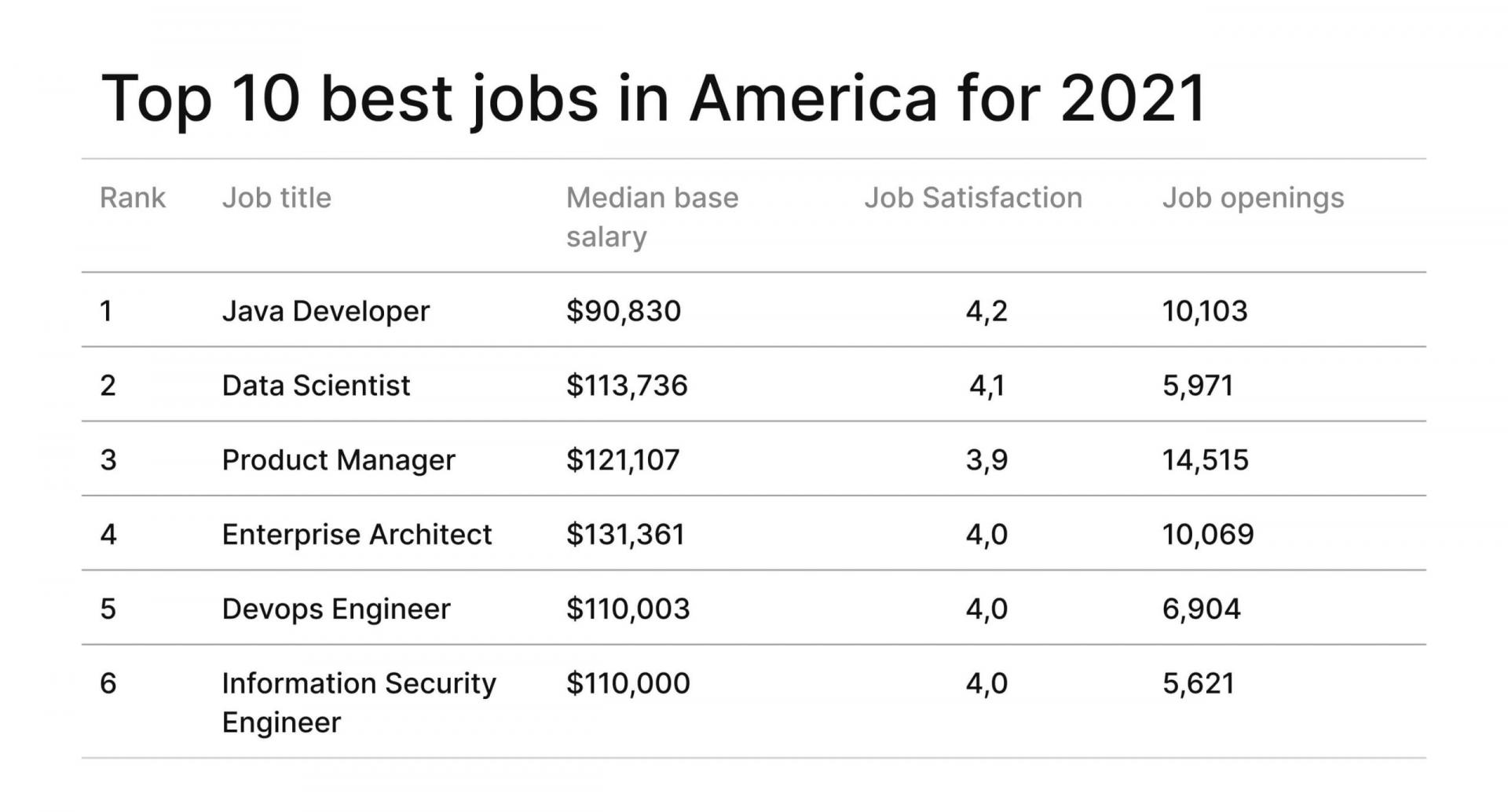
Source: Glassdoor.com, best jobs in America for 2021
It takes lots of resources to build customized infrastructure and support an in-house DevOps team. As the DevOps base salary is $110,003 a year, this means that you will be paying out each month more than $9,000 (AVG) to a DevOps specialist plus overheads and taxes, which is more than 40% higher than the average USA salary of workers in professional, management, and related occupations. DevOps is of course a very difficult role since DevOps engineers are expected to work with development and IT operations teams, quality control specialists, and production teams to oversee the delivery and release of code features. Moreover, DevOps engineers are expected to have and use well-developed soft and hard skills to expertly bridge the gap between diverse software production teams while seamlessly managing cloud infrastructure. In addition, DevOps engineers must have excellent leadership and business skills to work with teams and clients successfully. We’re sure you will agree that not every ex-developer or ex-sys-admin can grow into a high-performing DevOps expert. Plus, even if DevOps-level salaries do not scare you, the hiring period is long and expensive. Given that the hiring period for a software engineer is about 65 days, with DevOps, it’s logically more protracted and also involves a hefty hiring/onboarding spend, not to mention recruiters’ remuneration, managers’ impact on test tasks/interviews, and so on.
Are you sure you need full-time DevOps for each of your projects? In our experience, large businesses may need internal DevOps only in 30% of cases, while small businesses and startups may need it only in one or two cases. Simply put, DevOps specialists can help improve your infrastructure, automate and optimize key processes, and then monitor the systems. If this is your case, go outsourcing.
DevOps as a Service: perks and pitfalls
A DevOps team of mature DevOps professionals can provide DevOps as a Service (DaaS) and enable you to quickly deploy your products and focus on streamlining and simplifying internal SDLC processes and improving your core product/services. A key advantage to DaaS is that the DaaS team will have all the expertise and experience needed to leverage DevOps best practices and handle virtual infrastructure processes easily and is best placed to troubleshoot any ad hoc issues.
As well as cutting the costs of implementation, you also save time/money on recruiting and onboarding new team members, and thus reduce the risk of staff turnover. At the same time, your employees can remain focused on things that are more important to your business goals. In addition, if you are satisfied with the result of your DaaS cooperation, you can continue the partnership. If not, you can source a new partner. So basically, when you deal with DevOps as a Service, you get:
- End-to-end IT services covering all phases of SDLC. Plus, mature DevOps specialists’ decisions are driven by an ethos of enhancing the value of your business.
- Improvements to your existing cloud infrastructure. Experienced DevOps engineers will design and implement cloud infrastructure of any size and complexity or upgrade your existing systems to fulfill your business requirements utilizing DevOps best tools and practices.
- Vetted & handpicked DevOps talents. Many companies, when dreaming about streamlined and automated product delivery processes, find it difficult to attract serious DevOps talents. Dedicated DaaS teams help overcome this problem.
- Management and professional advice. You can turn to a mature DaaS company for consulting services to help you clarify ideas on how to improve your product/service delivery processes.
However, as with most business-critical decisions, deciding between DevOps inhouse and outsourcing to a DaaS is not a piece of cake! Far more than costs and deadlines are involved, so here are some key questions to ask:
1. Which of your DaaS candidate companies has the most inside knowledge and hands-on experience of your type of business?
2. How reliable are the DaaS candidate companies – they will after all have access to the heart of your business. Security is key. Is there a risk of business espionage? Is your standard NDA strong enough?
3. Day-to-day communications: How will a DaaS team communicate and interface with key people in your company and which of your people, processes and tasks will be affected and/or need to be?
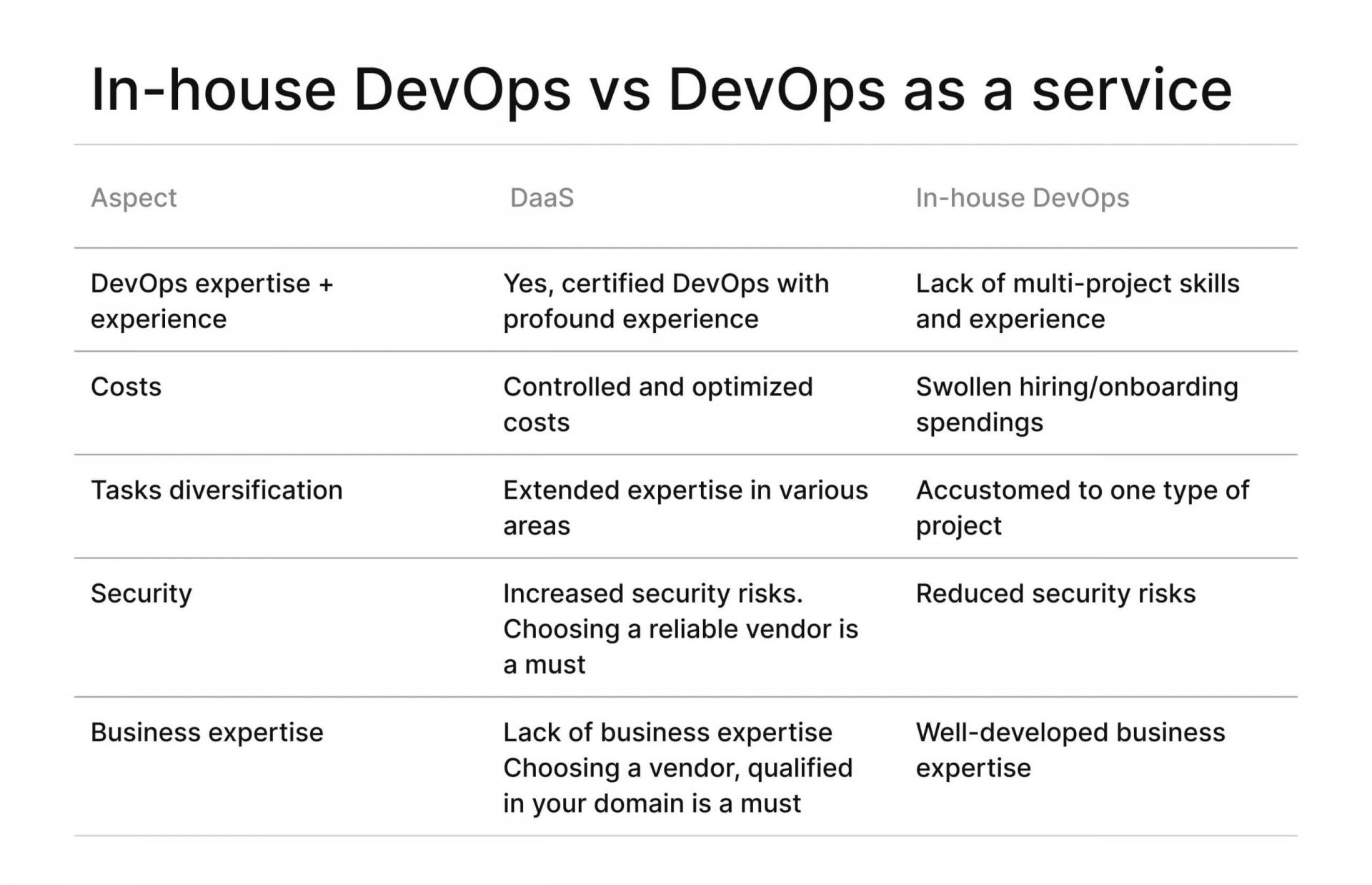
How to choose a good DevOps service provider
As interest in cloud computing only grows, the need for DevOps services is growing too. The pre-pandemic numbers from Global Market insights suggested that this market would increase four times and reach $17B by 2026. North America was leading the implementation of DevOps solutions, with 45% of the market share.
With so many companies and agencies offering DevOps as a service in the ever-changing IT market, it can be difficult to make the right choice. How to distinguish between a good and a bad DevOps service provider? And what will work for your business? Is it a matter of technical skills or the knowledge of DevOps best practices? Here are a few things you should keep in mind as you embark on your quests to find a DevOps service provider.
1. Decide what processes you want to improve with DevOps. Whether you plan to move to cloud, scale up your infrastructure or reduce your cloud spending, be sure you set realistic goals and KPIs. And remember that you may also need to invest effort in cleaning up your existing infrastructure.
2. Focus on what you need. Look at DaaS providers with experience in your domain.
3. Pay attention to tech expertise. Some companies work only with one cloud, some provide a wide range of DevOps services (including setting CI/CD pipeline or cloud-to-cloud migrations). Choose a company with comprehensive tech expertise to cover all your needs.
4. Check their portfolio. While choosing between several options, opt for a company with a proven record of successful projects.
5. Reduce the risks. Choose a company with a spotless reputation and all necessary certifications to ensure the security and the quality of the services.
With the above-mentioned tips, you’ll definitely be among those who benefit from DevOps. Our DevOps specialists meet all the requirements for the best DevOps as a service provider and will help you hit DevOps milestones in no time.
Final thoughts
The author of this 2016 article in Forbes compared DevOps implementation to gear shifting, which means that improvements to DevOps are visible at every stage of the development process since engineers could once again focus entirely on the product rather than manually performing routine tasks. The best DevOps engineers can simplify product development, improve communication between individual project teams, and save the company money. DevOps functions run in the background, ensuring that all systems are constantly monitored and operational. In addition, when problems arise, DevOps engineers act as good problem solvers. At the same time, hiring for DevOps is not an easy thing to do. Many businesses cannot afford to spend months recruiting and onboarding. Moreover, it is quite expensive to hire and maintain your own DevOps engineers. Many businesses simply do not have the time and resources to build an in-house DevOps team.
We, at Profisea, know what to do. We have enormous experience with DevOps and leverage DevOps best practices to ensure transparency, collaboration and cross-functionality of your teams, and lead you to DevOps success. Contact us and book a free appointment today!
